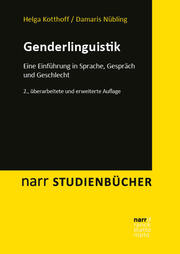Whoever Controls Your Eyeballs Runs the World (gebundenes Buch)
Whoever Controls Your Eyeballs Runs the World
Visualisierung von Kunst und Gewalt im Werk von Don DeLillo, Representations & Reflections 5, Representations & Reflections 5
Veröffentlichung: Uwe Baumann
Veröffentlichung: Barbara Schmidt-Haberkamp
Veröffentlichung: Marion Gymnich
Erschienen am
16.11.2011
Bibliographische Informationen
ISBN/EAN: 9783899718492
Sprache: Deutsch
Seiten: 522 S., 9 Fotos
Fomat (h/b/t): 4 x 24.8 x 17 cm
Auflage: 1. Auflage 2012
Bindung: gebundenes Buch
Beschreibung
Don DeLillos Werke bringen kulturpolitische Befindlichkeiten seismographisch auf den Punkt und geben komplexe Einblicke in die amerikanische Kultur. Julia Apitzsch untersucht am Romanwerk DeLillos die visuelle Repräsentation von Geschichte und kultureller Wirklichkeit in ihrer thematischen und ästhetischen Funktion. DeLillo präsentiert die Schlüsselmomente der amerikanischen Geschichte als gewaltvoll und traumatisch. Durch ihre Visualisierung haben sie sich in das kollektive Gedächtnis eingebrannt. DeLillo hinterfragt die Macht- und Bedeutungsmechanismen der Bilder und lotet die verschiedenen Möglichkeiten einer kreativen Rückgewinnung der Kontrolle mithilfe der Sprache aus, indem er die Bilderflut in literarische Motive übersetzt. Gerade traumatische Ereignisse wie die Terrorangriffe des 11. Septembers, die eine überwältigende Bilderflut nach sich ziehen, zeigen, dass der Schriftsteller als Interpret der Bilder wichtiger ist denn je.
Leseprobe
The works of Don DeLillo's give a seismographic account of the cultural political situation and offer complex insights into American culture. Julia Apitzsch examines the thematic and aesthetic function of the visual representation of history and cultural reality in DeLillo's novels. DeLillo's portrayals of key events in American history are violent and traumatic. Their visualisation has burned them into the American collective memory. DeLillo critically examines the mechanisms of power and significance of images and sounds out the various possibilities of creatively reclaiming control through language, by translating the flood of images into literary motifs. Especially traumatic events such as the terrorist attacks of 11th September, which generated an overwhelming torrent of images, show that as an interpreter of images, the author is more important than ever.>
Weitere Artikel aus der Kategorie "Sprachwissenschaft, Literaturwissenschaft"
Lieferbar innerhalb ca. einer Woche

Lieferbar innerhalb 24 Stunden

Derzeit nicht verfügbar

Lieferbar innerhalb 24 Stunden






